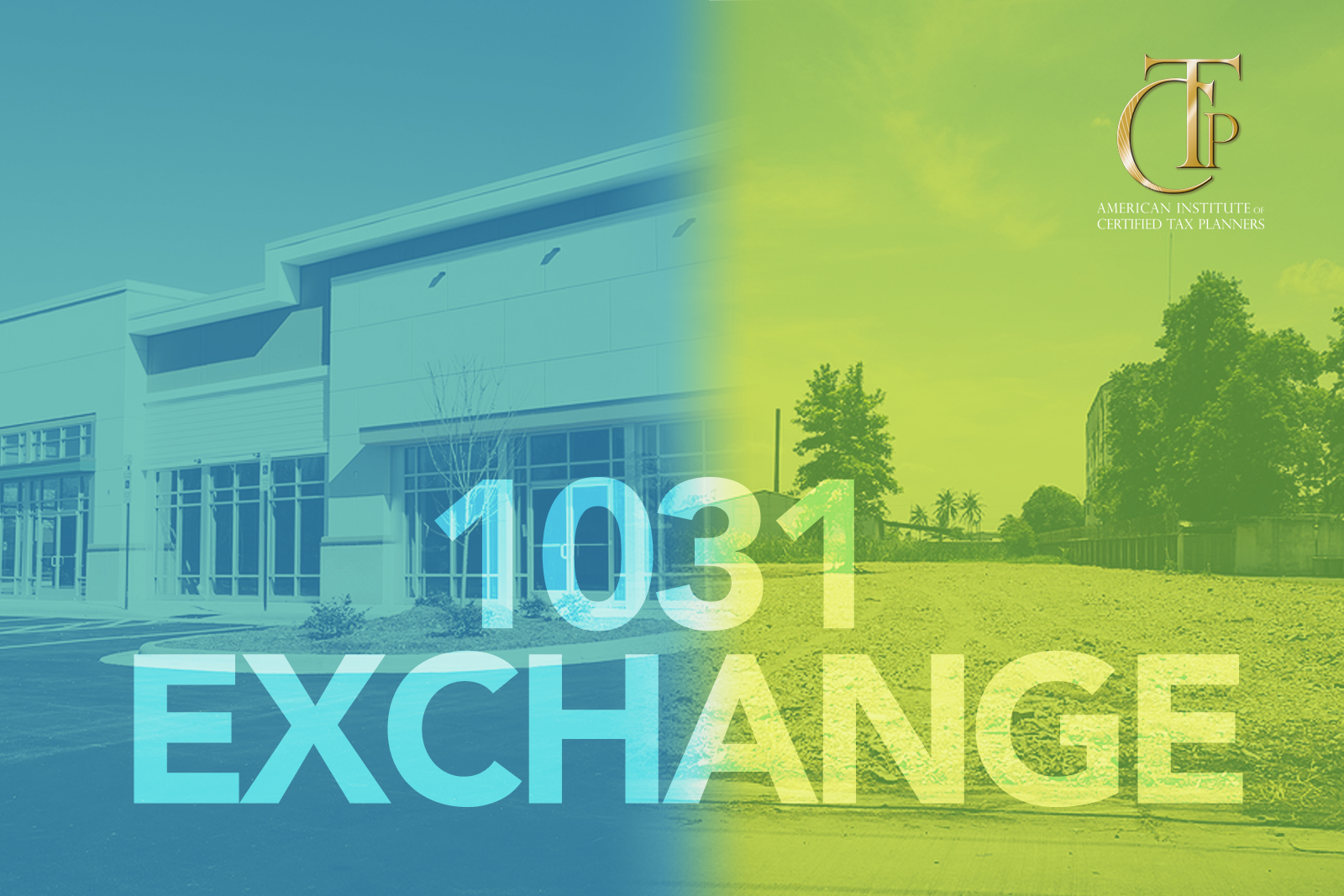If you own a business or investment property, deciding when to sell it can be complicated, in part because of the hefty taxes you will have to pay on the profit or “gain” from that sale. What if there was a way to delay taxation by simply trading one property for another? This is the concept behind the 1031 exchange. The IRS allows taxpayers to postpone paying the usual capital gains tax tax if that gain is reinvested into a similar property.
Keep in mind that tax deferral is not tax elimination. This strategy simply allows taxpayers to delay paying tax until a future year when it may be more beneficial—say if they are in a lower tax bracket or have more available deductions to offset their taxes owed. Read on to learn more about the 1031 exchange and when it can be used.
So You Invested in Real Estate… What Are Your Options?
Property owners have three main options for maximizing their return on a real estate investment:
- Hold: If the conditions do not seem right to sell or make an exchange, property owners can always hold onto the property. The question is whether they will miss out on better returns if their property is located in an area without much job growth or where property values are unlikely to increase over time.
- Sell: If the property owner is looking to get out of the real estate market, they can sell and simply pay the capital gains taxes owed. This would allow the taxpayer to move the money earned into other types of investments. However, taxpayers may find it difficult to achieve the same return on investment outside of real estate.
- 1031 Exchange: Lastly, if the taxpayer is willing to stay in the real estate market, they can opt for an 1031 exchange, trading their current property for a “like-kind” property. This can allow the taxpayer to purchase a larger replacement property while deferring the payment of taxes.
How Do You Qualify for a 1031 Exchange?
So how do we know whether a property exchange qualifies for 1031 treatment? The IRS rules say: “No gain or loss shall be recognized on the exchange of real property held for productive use in a trade or business or for investment if such real property is exchanged solely for real property of like-kind, which is to be held either for productive use in a trade or business or for investment.”
The unique term here is “like-kind” property. This does not mean that the properties need to be close to identical. Any real estate asset may be considered “like-kind” to another if both properties are held for business, productive use in a trade, or investment. An apartment building could be considered like-kind to an industrial property if both are business properties.
With that in mind, most investment properties are going to qualify. If you buy a rental property and receive rent from tenants, that property will likely qualify even if there are times when the property sits vacant. The property can be owned by an individual, C corporation, S corporation, partnership, limited liability company, trust, or other taxpaying entity.
The main category that does not qualify for 1031 treatment is property that is primarily “held for sale.” In other words, if you are functioning as a property dealer or developer, your properties will not likely qualify. How does the IRS determine if a property is held for sale? Any of the following could factor in:
- The purpose for which the property was initially acquired
- The purpose for which the property was subsequently held
- The purpose for which the property was held at the time of sale
- The extent to which improvements were made to the property
- The frequency, number, and continuity of sales
- The extent and nature of the transaction involved
- The ordinary course of business of the taxpayer
- The extent of advertising, promotion, or other active efforts used in soliciting buyers for the sale of the property
- The listing of property with brokers
What Are Your Intentions with This Property (and Can You Prove It)?
Under certain circumstances, a property could be held for sale and still qualify for 1031 treatment. A key court case on this topic is Allen v. United States. Allen owned a property with partners and was attempting to develop this property in order to sell it and turn a profit. So in this case, the “purpose for which the property was initially acquired” was to sell. In fact, Allen did sell the property to a developer and attempted to apply 1031 treatment. At this point, the IRS found out that it was a developer status property and deemed that this did not qualify as 1031 exchange. Allen appealed the decision but was not able to provide evidence that he had changed his intent during the time that he owned that property.
This court case helps us consider how a property owner might make the case that their purpose for the property had changed. What if Allen had written a letter to his attorney about his intentions for the property or changed the type of insurance he had? This could demonstrate that there was a shift in the intended use for the property. The same could be true if Allen had started collecting income by renting out the property or posted an advertisement to rent the property or sell it as-is. Some official communication that shows the purpose of the property changed before the date of the sale could work as proof that you qualify for 1031 treatment.
Summary
A 1031 exchange can provide a strategic way to defer taxes until a time that is more advantageous to the taxpayer. If you purchased real estate for business or investment purposes and are willing to stay in the real estate market, this method could allow you to upgrade to a larger or a better property without immediately realizing a gain. For expert advice on tax planning for your investments, reach out to a Certified Tax Planner today.







